Irish co-ops have a lot of work to do to get milk prices up and above the average EU milk price, IFA presidential candidate Tim Cullinan has said.
In response to a question on what he would do about the Irish milk price being so far behind the European milk price in the Irish Farmers Journal Around the Editor’s Table debate on Friday, he said co-ops need to be getting into the top markets and adding value to milk.
“I think what we need to do first of all, the co-ops are selling a lot of high-value end product like baby formula into China and into Asia and that’s achieving anything up to €40,000/t. They need to be getting to the top markets. There needs to be more added value to what co-ops are producing.
“There’s no point in just producing powder, skim and butter and in a time then when there’s powder in storage and it’s coming back out again when the price increases, it’s going to depress the market again.
Research and development
“I think our co-ops need to invest in research and development, there’s a lot of funding available in Brussels for research and development, and develop new products and find new markets, like as I said the baby formula that’s generating up to €40,000/t. They need to move forward, they need to be more efficient if they’re going to survive into the future. It’s about adding value and achieving a higher price for farmers,” he said.
Strengthening balance sheets
In response to the same question, Angus Woods said that what is happening at farm level needs to be looked at.
It’s not right that the co-ops are rebuilding balance sheets while farmers are working harder and taking on more debt
“You’ve seen dairy farmers working harder and harder year after year. Milk price has not moved on. Any efficiencies gained at farm level has been absorbed within the co-op sector. Farm debt levels have gone up €50,000 in a calendar year.
“Farmers are having to take on more debt and what’s happening is the co-ops are actually looking to strengthen their balance sheet. The price needs to move on for farmers, it’s got to return a balance.
“It’s not right that the co-ops are rebuilding balance sheets while farmers are working harder and taking on more debt. That has to be rebalanced,” he said.
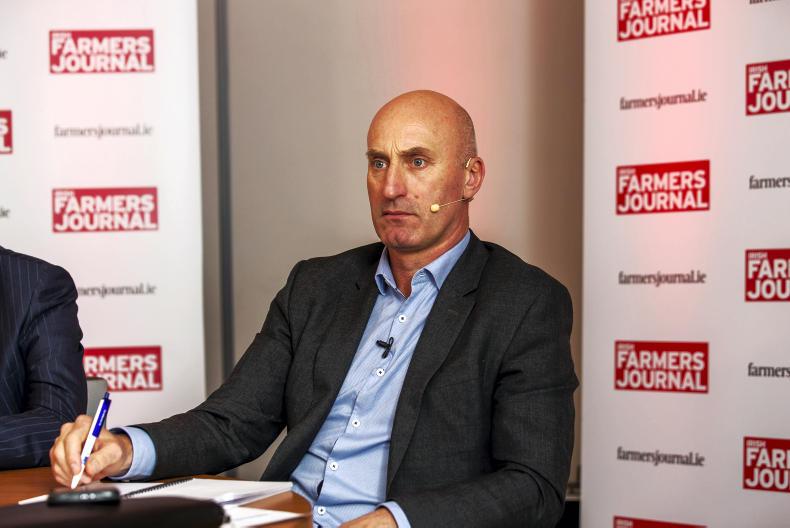
Angus Woods.
Complacency
John Coughlan, the only dairy farmer in the race, said a certain amount of complacency has set in within the dairy industry.
“The margins the co-ops and processors have versus the farmer price has increased from the 5-6c/l to 7-8c/l at this stage and I think that’s where our real problem is.
“Some of that is obviously down to repaying debt for expansion, but look I think we do need to see more collaboration on marketing products and I think we have the Ornua model that has been working very well in the American and the German market and I think we need more of that and we need to use more of that.
“We need to be very careful with the way co-ops are competing against each other out there in the marketplace. We have a good product to sell. We have to sell it right and we’ve to continue to work together to sell that so that the benefits are passed back to farmers,” he said.
A follow-on question put to the candidates was that “there obviously is a big investment gone into stainless steel and processing capacity and it’s going to take some time for marketing and premiumisation strategy to catch up with that. Is that a legitimate argument?”
Coughlan said that in a sense it is legitimate but the reality is that it is a long-term plan and it has to be a long-term payback at co-op level.
“We as farmers can’t take the full cost of that in a very short period,” he said.
Cullinan laid the blame at the co-ops’ feet in terms of planning.
It’s a bit rich coming back and saying we’ve invested all this money and that we can’t return a decent price to farmers
“Everybody knew that quotas were going to be abolished, it was up to the co-ops to be planning. There’s no point in investing in a business if you haven’t planned for the future and I would have thought that there is no point in coming back now and saying ‘we have expanded and we haven’t got the markets right’.
“We need to go the other way around, if you’re going to expand the business, you need to ensure you have the market to sell that produce first. It’s a bit rich coming back and saying we’ve invested all this money and that we can’t return a decent price to farmers. We have to remember here that the farmer has invested massively in infrastructure himself, increasing his herd size, buying land,” he said.
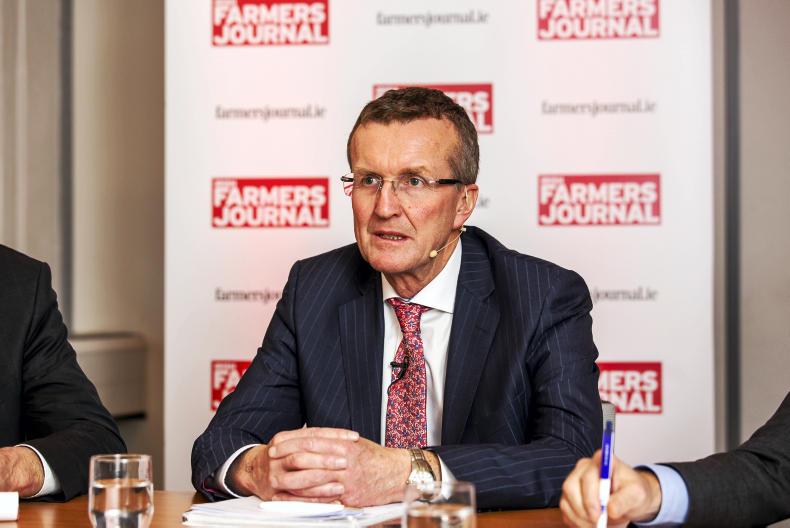
Tim Cullinan.
Woods said that the co-ops need to look at the efficiencies within their own organisations.
“What’s very obvious is there is a significant difference between what’s being paid by different co-ops.
“We need to see the co-ops at the bottom of the table up their game and maybe they need to look at the efficiencies within their own organisations because farmers have really tightened up inside the farm gate, they’re working harder, they’re borrowing more money, the cows are producing more, better quality. Everything’s performing very well within the farm gate,” he said.
New entrants and paying for extra capacity
In relation to upfront payments for new entrants and who will pay for extra processing capacity, Woods said the farmers who are already in the system will be in there not having had to make an upfront payment to fund capacity, which is what is being discussed in some cases at the moment. He added that young farmers are looking to get in to co-ops.
“The balance has to be got right on that. It’s going to have to be balanced up fairly in that you do have to make room to let in new entrants. We can all talk about an aging farm population but if you close the door and make it extremely difficult for a young farmer to come in, we’re not going to get young farmers into farming,” he said.
Coughlan said that a system is needed where young farmers can get into the industry.
Anybody coming into the industry is going to have to make some contribution to it
“I believe that farmers up to now have paid and the co-op ethos is that farmers support each other, but I think we have to be prepared to say that anybody coming into the industry is going to have to make some contribution to it. There will have to be something for those that are coming in,” he said.
He added that existing suppliers will have to pay for some of it as well.

John Coughlan.
Cullinan said co-ops were formed and were funded by farmers from the start so if a farmer has been in there for a long number of years, he has put his money on the table, he has helped develop the co-op.
“We have to be realistic here. The co-op is going to fund it. Obviously there’ll be less cash available to pay back the milk price and I think we have to ensure that there is a way in for young farmers. I think that is critical, because without young blood coming in to any industry we will run into difficulty.
“At the same time, though, if someone is coming into a new industry and hasn’t funded any of the facilities, there has to be something there that new entrants will have to fund part of it, but at the same time it needs to be balanced that there is a way in for new entrants,” he said.
Read more
Paddy Power reveals favourite for IFA election
IFA presidential debate: the candidates on 10 key farming questions
IFA presidential debate: what would the candidates do to tackle TB?
Watch back: IFA candidates take part in Irish Farmers Journal debate
Irish co-ops have a lot of work to do to get milk prices up and above the average EU milk price, IFA presidential candidate Tim Cullinan has said.
In response to a question on what he would do about the Irish milk price being so far behind the European milk price in the Irish Farmers Journal Around the Editor’s Table debate on Friday, he said co-ops need to be getting into the top markets and adding value to milk.
“I think what we need to do first of all, the co-ops are selling a lot of high-value end product like baby formula into China and into Asia and that’s achieving anything up to €40,000/t. They need to be getting to the top markets. There needs to be more added value to what co-ops are producing.
“There’s no point in just producing powder, skim and butter and in a time then when there’s powder in storage and it’s coming back out again when the price increases, it’s going to depress the market again.
Research and development
“I think our co-ops need to invest in research and development, there’s a lot of funding available in Brussels for research and development, and develop new products and find new markets, like as I said the baby formula that’s generating up to €40,000/t. They need to move forward, they need to be more efficient if they’re going to survive into the future. It’s about adding value and achieving a higher price for farmers,” he said.
Strengthening balance sheets
In response to the same question, Angus Woods said that what is happening at farm level needs to be looked at.
It’s not right that the co-ops are rebuilding balance sheets while farmers are working harder and taking on more debt
“You’ve seen dairy farmers working harder and harder year after year. Milk price has not moved on. Any efficiencies gained at farm level has been absorbed within the co-op sector. Farm debt levels have gone up €50,000 in a calendar year.
“Farmers are having to take on more debt and what’s happening is the co-ops are actually looking to strengthen their balance sheet. The price needs to move on for farmers, it’s got to return a balance.
“It’s not right that the co-ops are rebuilding balance sheets while farmers are working harder and taking on more debt. That has to be rebalanced,” he said.

Angus Woods.
Complacency
John Coughlan, the only dairy farmer in the race, said a certain amount of complacency has set in within the dairy industry.
“The margins the co-ops and processors have versus the farmer price has increased from the 5-6c/l to 7-8c/l at this stage and I think that’s where our real problem is.
“Some of that is obviously down to repaying debt for expansion, but look I think we do need to see more collaboration on marketing products and I think we have the Ornua model that has been working very well in the American and the German market and I think we need more of that and we need to use more of that.
“We need to be very careful with the way co-ops are competing against each other out there in the marketplace. We have a good product to sell. We have to sell it right and we’ve to continue to work together to sell that so that the benefits are passed back to farmers,” he said.
A follow-on question put to the candidates was that “there obviously is a big investment gone into stainless steel and processing capacity and it’s going to take some time for marketing and premiumisation strategy to catch up with that. Is that a legitimate argument?”
Coughlan said that in a sense it is legitimate but the reality is that it is a long-term plan and it has to be a long-term payback at co-op level.
“We as farmers can’t take the full cost of that in a very short period,” he said.
Cullinan laid the blame at the co-ops’ feet in terms of planning.
It’s a bit rich coming back and saying we’ve invested all this money and that we can’t return a decent price to farmers
“Everybody knew that quotas were going to be abolished, it was up to the co-ops to be planning. There’s no point in investing in a business if you haven’t planned for the future and I would have thought that there is no point in coming back now and saying ‘we have expanded and we haven’t got the markets right’.
“We need to go the other way around, if you’re going to expand the business, you need to ensure you have the market to sell that produce first. It’s a bit rich coming back and saying we’ve invested all this money and that we can’t return a decent price to farmers. We have to remember here that the farmer has invested massively in infrastructure himself, increasing his herd size, buying land,” he said.

Tim Cullinan.
Woods said that the co-ops need to look at the efficiencies within their own organisations.
“What’s very obvious is there is a significant difference between what’s being paid by different co-ops.
“We need to see the co-ops at the bottom of the table up their game and maybe they need to look at the efficiencies within their own organisations because farmers have really tightened up inside the farm gate, they’re working harder, they’re borrowing more money, the cows are producing more, better quality. Everything’s performing very well within the farm gate,” he said.
New entrants and paying for extra capacity
In relation to upfront payments for new entrants and who will pay for extra processing capacity, Woods said the farmers who are already in the system will be in there not having had to make an upfront payment to fund capacity, which is what is being discussed in some cases at the moment. He added that young farmers are looking to get in to co-ops.
“The balance has to be got right on that. It’s going to have to be balanced up fairly in that you do have to make room to let in new entrants. We can all talk about an aging farm population but if you close the door and make it extremely difficult for a young farmer to come in, we’re not going to get young farmers into farming,” he said.
Coughlan said that a system is needed where young farmers can get into the industry.
Anybody coming into the industry is going to have to make some contribution to it
“I believe that farmers up to now have paid and the co-op ethos is that farmers support each other, but I think we have to be prepared to say that anybody coming into the industry is going to have to make some contribution to it. There will have to be something for those that are coming in,” he said.
He added that existing suppliers will have to pay for some of it as well.

John Coughlan.
Cullinan said co-ops were formed and were funded by farmers from the start so if a farmer has been in there for a long number of years, he has put his money on the table, he has helped develop the co-op.
“We have to be realistic here. The co-op is going to fund it. Obviously there’ll be less cash available to pay back the milk price and I think we have to ensure that there is a way in for young farmers. I think that is critical, because without young blood coming in to any industry we will run into difficulty.
“At the same time, though, if someone is coming into a new industry and hasn’t funded any of the facilities, there has to be something there that new entrants will have to fund part of it, but at the same time it needs to be balanced that there is a way in for new entrants,” he said.
Read more
Paddy Power reveals favourite for IFA election
IFA presidential debate: the candidates on 10 key farming questions
IFA presidential debate: what would the candidates do to tackle TB?
Watch back: IFA candidates take part in Irish Farmers Journal debate







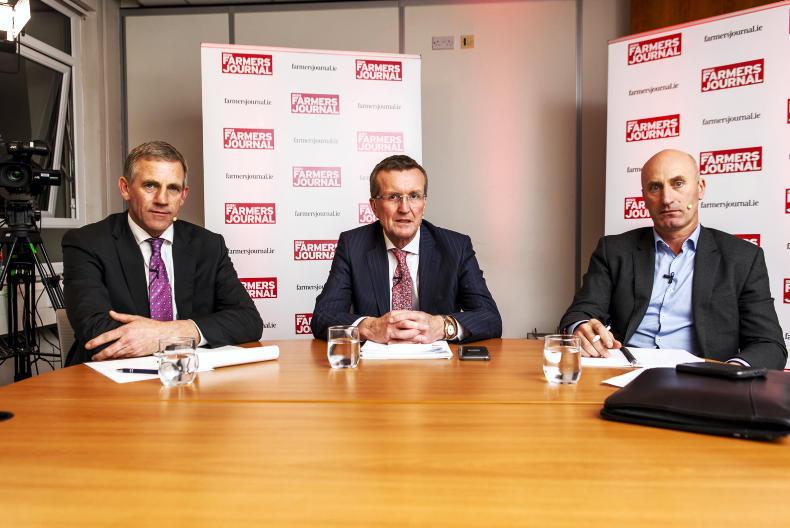

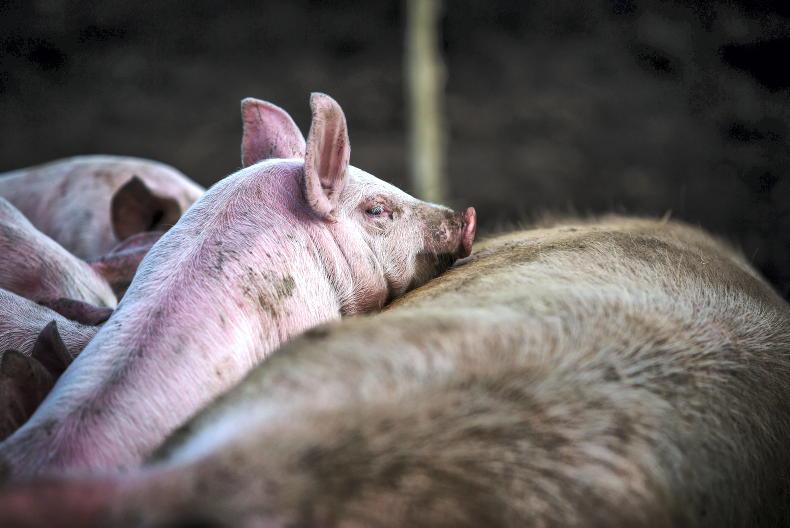
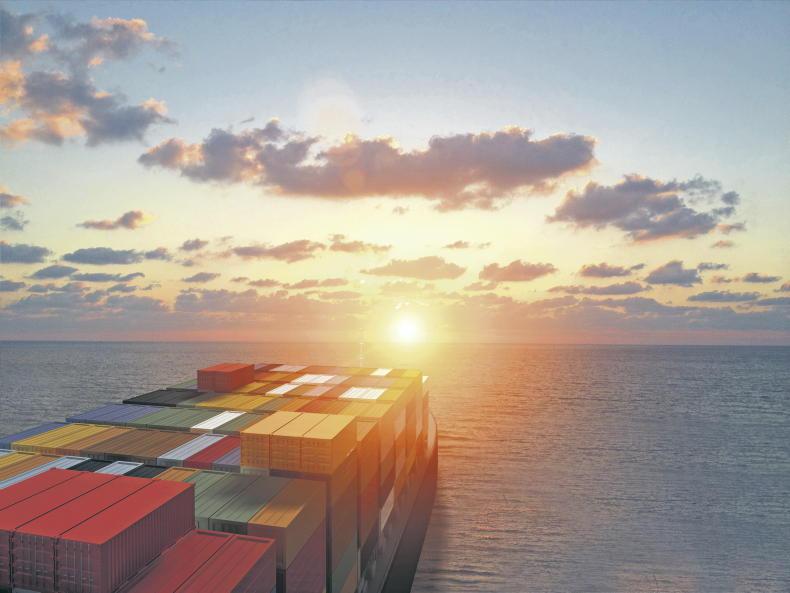
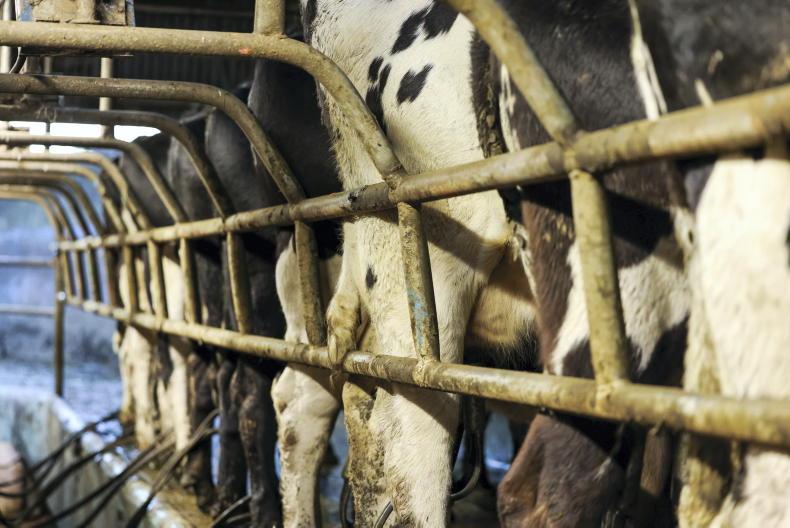
SHARING OPTIONS